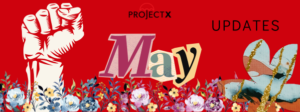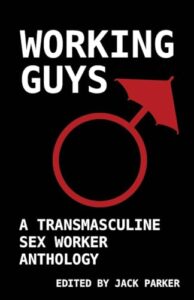Content warnings for: torture, societal persecution and mentions of rape
Synopsis
Infidels, originally written in French, is a 2012 novel by acclaimed Moroccan author Abdellah Taia. It centers primarily on the life of Jallal, a gay man, and his relationship with his mother, Slima, an introductrice (a sex worker who helps couples on their wedding night). Set primarily in Morocco during the authoritarian rule of King Hassan II, the novel explores Jallal’s relationship with Slima through the lenses of different characters, including Slima herself, as well as Saadia, Slima’s mother.
In Morocco, Jallal and Slima face cruel prejudice on the basis of Slima’s occupation as a sex worker. As a result of this, Slima is dehumanised and brutally tortured by the state due to her connections with a client who the secret police suspected of sedition. His mother’s broken mental state upon her release, drives Jallal, now deprived of his only family, into a dark state of loneliness and resentment.
In lyrical, captivating prose, Taia delivers a sounding indictment of the patriarchal, stifling values of both Moroccan society and its state. This is clear not just in the graphic depiction of Slima’s torture and rape at the hands of the state, but in Jallal’s tragic slide into violence, its uncaring cruelty ultimately claiming the lives of both.
Meet Slima
“You’ll be an introductrice, like me. Free, like me. A queen. Not in the eyes of others, who are ignorant and will always see you as a prostitute. A queen, because you’re the one who’s decided what you will be.”
-Saadia
Slima is a professional introductrice, an occupation she inherited from her mother, Saadia. Her work involves assisting newlywed couples during their first time having sex. As conservative Moroccan society prioritises the notion of female sexual purity, it is imperative that when a newlywed couple first has sex on their wedding night, blood must flow from the bride’s vagina onto the bedsheets, an indicator of that coveted virginity.
Sex Work and Islam
In many Muslim-majority societies, sex work is often understood in the context of zina (unlawful sexual intercourse) due to it involving sexual relations outside of marriage. When combined with Prophet Muhammad (SAW)’s historic efforts to reform early Arab society towards more progressive norms, which included forbidding sex work to uphold women’s rights. This often means that sex work remains taboo in these societies.
As no specific verses on sex work in Islam exist (to our knowledge), here is a possible alternative:
“…There is no blame on you for what you do by mistake, but ˹only˺ for what you do intentionally. And Allah is All-Forgiving, Most Merciful.” – Verse 5 of Surah Al-Ahzab, translated by Dr Mustafa Khattab
Here, Muslims are reminded that God is the final judge of every person’s actions, as He knows our intentions for doing so – even for Muslim sex workers. Hence, rather than fixating on the actions of other Muslims, this verse reminds Muslims to leave it to God and focus on oneself. Whatever the intentions of Muslim sex workers, it is between them and God, and God will judge them accordingly, Insha Allah (God Willing).
Complicating the Narrative
While mainstream views within Islam view sex work as forbidden within society, Taia’s portrayal of sex work within conservative Morocco is complicated via the characters of Slima and Saadia.
“The third night you will lie beside me. Do not sleep. Don’t sleep, whatever you do. At a certain moment, something will be revealed to you”
-Saadia
“Other people. They’ll come to you, seeking your knowledge, your skills, your blessings. No marriage will be sealed without you, my girl. You’ll be an introductrice, like me. Free like me.”
-Saadia
Slima inherits her knowledge of human sexuality from Saadia via an intricate and mystical ritual, depicted by Taia in enchanting prose. Saadia’s monologue throughout the ritual alludes to the divine and Morocco’s ancient, pre-Islamic Berber history. Through this, knowledge of sex work within Moroccan society is presented not as dirty and crude, but as something divine that you have to be chosen to inherit.
Sex workers as political pawns
In the historic setting of Infidels, the Moroccan state is embroiled in a war with the Polisario Front, a leftist armed group in the south which seeks independence for the indigenous Sahrawi people.
This political reality comes to haunt Slima and Jallal, as one of Slima’s clients, a soldier, is suspected of being an agent for the Polisario Front. As Slima is already so dehumanised in the eyes of society, the state has no qualms using the secret police to abduct her, but not before she is able to use her connections to a powerful client in order to send Jallal to Cairo for his safety.
“Holding out against sex-starved men is my job. Giving them only what I want to give. Very little.
But how to hold out against the secret police?”
-Slima
In captivity, Slima is brutally tortured and raped by the secret police to extract a confession. The years spent languishing in prison leave a scar on her psyche, and she emerges from prison alive, but permanently changed, and unable to reconnect with her son.
Meet Jallal
“They say I’m dirty. You’re dirty. I am the son of a dirty woman. The son of dirty Slima. You’re not dirty, maman. My Slima. I know that. You’re not dirty.”
– Jallal
Jallal is introduced as a young boy, one who despite his age, is already very aware of the persecution faced by his mother. Despite Slima’s work being essential to upholding Moroccan society’s conservative norms around marriage, she is in fact a pariah among her community, being deemed an “immoral” woman for her profession. He rightfully views society’s actions: condemning Slima in public while patronising her in secret, as hypocritical.
“They’ll pass through. Only pass through. Men of all ages. Sorcerers. Bad guys. Friends. Parents. Police. Politicians. Madmen. They all end up leaving. Freedom with you is not to their taste. It scares them”
– Jallal
As a result, Jallal is filled with resentment towards society for wronging his mother. In the very first chapter of the book, where we are introduced to Jallal, he monologues about his desire to spit on the hypocrites who disparage his mother.
When reunited with his mother in Cairo, Jallal finds that years of captivity have irrevocably changed her, and is unable to rekindle the closeness that once existed between them. Enraged by the atrocities inflicted upon her by the state, Jallal embarks on a self-destructive path of revenge, seeking to exact justice on the society that wronged his mother.
Ultimately, the state’s dehumanisation of Slima tears apart her family. Dehumanisation of sex workers by the state occurs not only in Morocco but here at home too. How many families like Slima’s have been torn apart for the political machinations of those in power?
Respites of Love
Despite the visceral image of oppression painted by Infidels, Taia also portrays the brief respites of comfort and love found in the lives of sex workers and their families.
“He was handsome like an imaginary father. He didn’t exist. My mother’s job had made him exist. The dream, the impossible fantasy had become reality. Twice a week, this soldier was our father in our new house.”
-Jallal
Lacking a father growing up, Jallal ultimately finds a surrogate father figure in one of Slima’s regular clients, the same soldier that ran afoul of the state. In Chapter 3, Jallal recounts moments of warmth, of him watching the movie River of No Return and singing the lyrics to its credits song together with the soldier.
When the soldier is sent off to fight the Polisario Front, the two share an emotional goodbye, with Jallal singing the song from River of No Return, which he had rehearsed intensely for this moment, as a parting gift for the soldier, who he never sees again.
About the Author
Abdellah Taia is a Moroccan writer and filmmaker, currently based in Paris, who writes mainly in the French language. Often considered to be the first openly queer Moroccan writer, his work often features narratives inspired by his experience growing up as a young queer man in Morocco.
Notably, Infidels is not his only work to touch on themes of sex work. In Taia’s autobiographical film Salvation Army, the Moroccan main character eventually comes to the realisation that he was effectively a sugar baby for an older, richer Swiss man (Demers, 2014), who had helped him emigrate to Switzerland for his studies in return for a relationship.
Perhaps, Taia’s constant intertwining of the themes of queerness and sex work hints at the intersectionality of the queer and sex worker experiences, both often forced to the margins by conservative social norms.
Acknowledgements
Project X would like to thank Quasa (@quasasg on Instagram) for contributing information for the section “Sex Work and Islam”. Without their valuable insights, this blogpost and the accompanying Instagram post would not have been possible.
Citations
Demers, N. (2014, August 25). Salvation Army / L’Armée du Salut – Nicolas Demers. Npdemers.net. http://www.npdemers.net/blog/2014/08/salvation-army-larmee-du-salut






